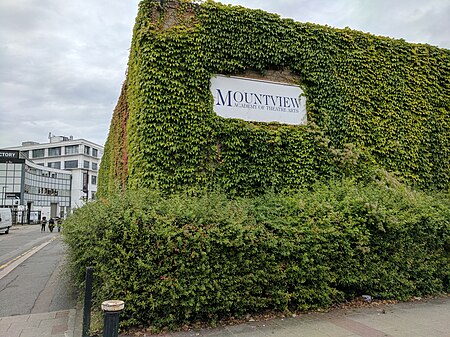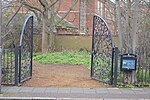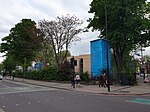Mountview Academy of Theatre Arts

Mountview Academy of Theatre Arts, formerly Mountview Theatre School, is a drama school in Peckham, south London, England, founded in 1945. The Academy provides specialist vocational training in acting and musical theatre, as well as production arts. The President of the school is Dame Judi Dench, and the Principal and Artistic Director Stephen Jameson. The institution prepares students for a professional career in the performing arts. The academy and its courses hold Qualifications and Curriculum Development Agency (QCDA) recognition, validated by the University of East Anglia and Trinity College, London. It was rated "Outstanding" for Overall Effectiveness by Ofsted in 2015. Key areas of study include performance and production. It is a member of the Federation of Drama Schools.
Excerpt from the Wikipedia article Mountview Academy of Theatre Arts (License: CC BY-SA 3.0, Authors, Images).Mountview Academy of Theatre Arts
Peckham Hill Street, London Peckham (London Borough of Southwark)
Geographical coordinates (GPS) Address Phone number Website Nearby Places Show on map
Geographical coordinates (GPS)
| Latitude | Longitude |
|---|---|
| N 51.474827 ° | E -0.0696 ° |
Address
Mountview Academy
Peckham Hill Street 120
SE15 5JT London, Peckham (London Borough of Southwark)
England, United Kingdom
Open on Google Maps









